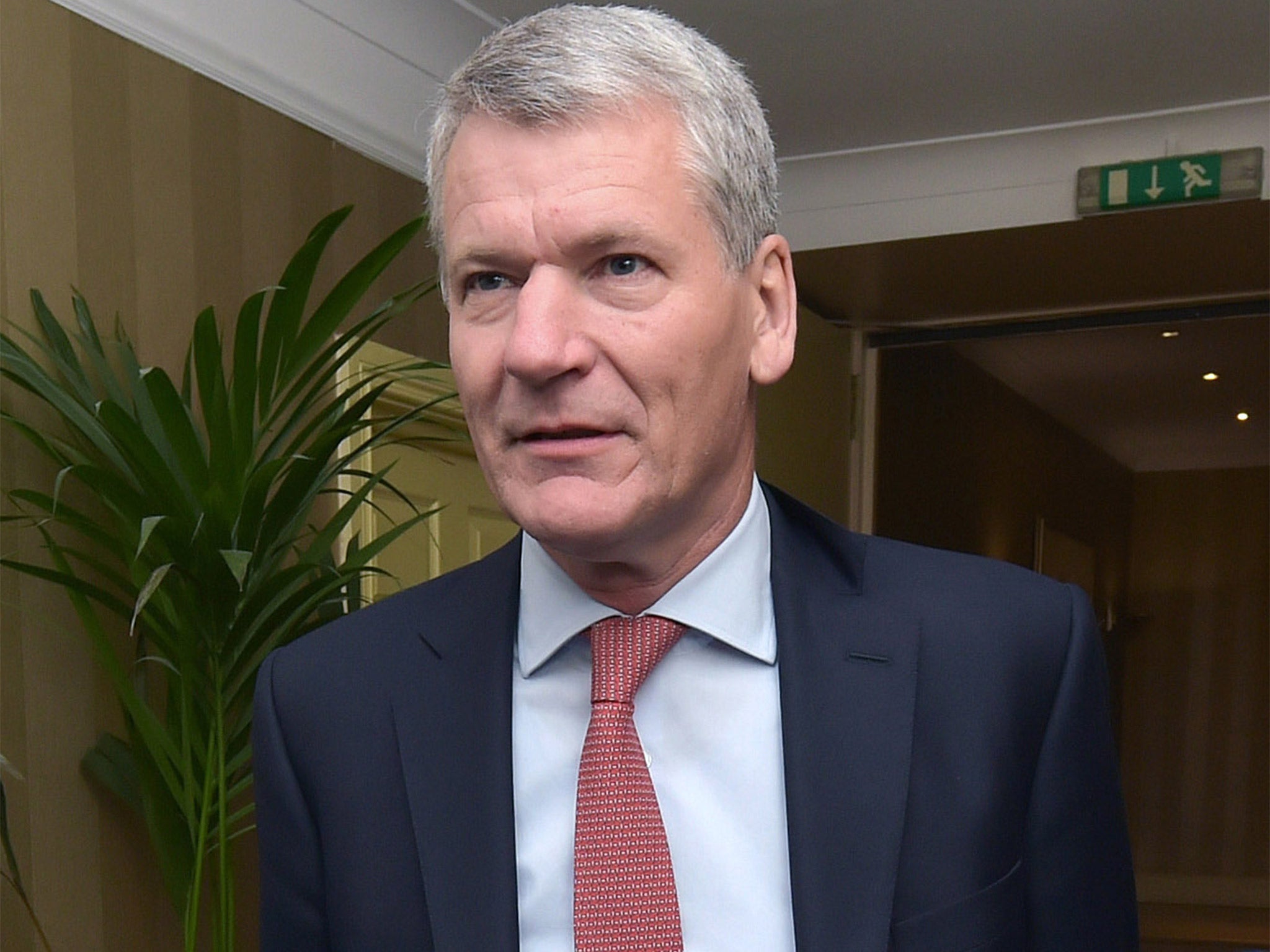England may bid for 2026 World Cup - but only if Sepp Blatter goes
Dyke confirms FA interest in hosting despite being humiliated in 2010

England could bid to host the 2026 World Cup, according to the Football Association chairman, Greg Dyke, following the appointment of Englishman David Gill on to the Fifa executive committee.
Dyke added any such move would depend upon whether Sepp Blatter was still president of Fifa during the process, among other factors.
He said Gill’s new standing at the governing body could prove helpful. “If David can assure us there’s a proper system and it’s fair then we could be persuaded,” Dyke said. “But at the moment the policy is straightforward: we don’t bid while Mr Blatter’s there.”
England lost out to Russia for the right to host the 2018 World Cup in 2010. They came fourth in the bidding process, winning only two votes, and an investigation into alleged corruption in the bidding for the 2018 and 2022 World Cups was conducted, though it cleared hosts Russia and Qatar of any wrongdoing.
Fifa’s secretary general Jérôme Valcke promised transparency “from the first minute of the process” ahead of the 2026 tournament, for which it is thought that the United States will submit a bid. The process will take place in 2017.
Dyke added: “It depends on the timetable, really. It depends on how quickly it has to be done. But remember, you have to get an awful lot of people onside and that’s not going to be easy in England now because a lot of people got badly scarred in the process last time.
“To make a bid you’ve got to get whoever is the government onside, and we don’t know who that is yet because they have to underwrite it. Also, there’s a lot of money involved, so if you haven’t got a chance, don’t do it.”
Manchester United director Gill was elected as the UK’s Fifa vice-president, succeeding Northern Ireland’s Jim Boyce by beating the Football Association of Wales president, Trefor Lloyd Hughes, by 43 votes to 10 in the election by Uefa’s 54 member nations at their congress in Vienna.
Uefa’s president, Michel Platini, who persuaded Gill to run for the post, said: “We have to defend European football without breaking world football. A lot people like things as they are. As I told him, ‘You, the English, are never happy’. Now at least he will be able to express it directly in the ExCo instead of through the press.”
The congress, which is being attended by Blatter, also heard from the three challengers to his Fifa presidency. The Dutch Football Association president, Michael Van Praag, was the most outspoken, saying: “The beautiful heritage of international football has been tarnished by accusations of corruption, bribery, nepotism and a waste of money.”
Prince Ali Bin al-Hussein of Jordan added: “Fifa has been riding the wave of European football success and while the popularity has soared the image of the organisation has sadly declined.”
Former Portugal international Luis Figo dismissed claims that the European body is trying to take over Fifa. “Nobody feels that Europe wants to take over football,” he said. “This is a lie.”
Platini urges tough action over hooliganism
Michel Platini, who was yesterday re-elected to the presidency of Uefa unopposed for a third term, warned about a return to the “dark days” of hooliganism at the European governing body’s Congress in Vienna.
He spoke of growing problems with hooligans and political fanatics taking control in football stadiums in Europe and called for tougher stadium bans and a European-wide sports police force.
“Europe is seeing a rise in extremism the like of which we have not witnessed for a long time,” the Frenchman said. “This insidious trend can also be observed in our stadiums. Our sport is a barometer for the ills of our continent – and that barometer is pointing to some worrying developments. I call for greater awareness of this issue so that we can avoid reliving the dark days of a not-so-distant past.”
Subscribe to Independent Premium to bookmark this article
Want to bookmark your favourite articles and stories to read or reference later? Start your Independent Premium subscription today.

Join our commenting forum
Join thought-provoking conversations, follow other Independent readers and see their replies